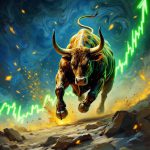
Understanding the Worst Trading Mistakes
Sep 18,2024
Trading, whether in stocks, commodities, or other financial instruments, has been a part of human civilization for millennia. From ancient Mesopotamian merchants to modern-day Wall Street traders, the pursuit of profit through exchange has remained a constant. However, there are also pitfalls that can lead to significant losses. In this exploration of the worst trading mistakes, we’ll examine common errors that have plagued traders throughout history and continue to challenge even the most seasoned professionals today.
1. Failing to Plan: The Root of Many Mistakes
One of the most fundamental and yet frequently committed worst trading mistakes is the failure to develop a comprehensive trading plan. Sun Tzu, the renowned Chinese military strategist from around 500 BC, emphasized the importance of preparation, stating, “The general who wins the battle makes many calculations in his temple before the battle is fought.” This wisdom applies equally to trading, where a well-thought-out strategy is essential for success.
A solid trading plan should include clear entry and exit points, risk management strategies, and criteria for selecting trades. Without such a plan, traders are more likely to make impulsive decisions based on emotions rather than logic, leading to poor outcomes.
2. Ignoring Risk Management
Neglecting proper risk management is another of the worst trading mistakes. Jesse Livermore, a famous American trader from the early 20th century, once said, “There is only one side of the market and it is not the bull side or the bear side, but the right side.” Understanding and managing risk is crucial to being on the “right side” of the market.
Effective risk management involves setting stop-loss orders, diversifying portfolios, and never risking more than a small percentage of trading capital on any single trade. Traders who ignore these principles often find themselves facing catastrophic losses that can be difficult to recover from.
3. Falling Prey to Cognitive Biases
Cognitive biases can lead to some of the worst trading mistakes. Daniel Kahneman, a psychologist and economist who won the Nobel Prize in Economic Sciences in 2002, has extensively studied how these biases affect decision-making. He noted, “The illusion that we understand the past fosters overconfidence in our ability to predict the future.”
Common biases that affect traders include:
– Confirmation bias: Seeking information that confirms existing beliefs while ignoring contradictory evidence.
– Anchoring: Relying too heavily on one piece of information when making decisions.
– Loss aversion: The tendency to prefer avoiding losses over acquiring equivalent gains.
Recognizing and mitigating these biases is crucial for making rational trading decisions.
4. Overtrading: Quantity Over Quality
Overtrading, or excessive trading, is often driven by the misconception that more trades lead to more profits. However, this is one of the worst trading mistakes a trader can make. Warren Buffett, one of the most successful investors of the 20th and 21st centuries, famously advised, “The stock market is a device for transferring money from the impatient to the patient.”
Quality trades, based on thorough analysis and aligned with a well-defined strategy, are far more likely to yield positive results than a high volume of poorly considered trades. Overtrading not only increases transaction costs but also exposes the trader to unnecessary risks.
5. Neglecting Technical Analysis
While fundamental analysis is crucial, ignoring technical analysis can lead to some of the worst trading mistakes. Charles Dow, one of the pioneers of technical analysis in the late 19th and early 20th centuries, believed that market prices reflect all known information about security. His work laid the foundation for modern technical analysis.
Technical analysis can provide valuable insights into market trends, support and resistance levels, and potential entry and exit points. Traders who neglect this tool may miss important signals that could inform their trading decisions.
6. Emotional Trading: Fear and Greed
Allowing emotions to drive trading decisions is among the worst trading mistakes. The ancient Greek philosopher Aristotle, writing in the 4th century BC, observed that “The aim of the wise is not to secure pleasure, but to avoid pain.” In trading, this translates to managing both fear and greed.
Fear can lead to premature selling or failure to enter potentially profitable trades. Conversely, greed can result in holding positions too long or taking on excessive risk. Successful traders learn to recognize and control these emotions, making decisions based on analysis and strategy rather than feelings.
7. Failing to Adapt to Market Conditions
Markets are not static, and failing to adapt to changing conditions is one of the worst trading mistakes. George Soros, a prominent trader and investor of the late 20th and early 21st centuries, emphasized the importance of flexibility, stating, “It’s not whether you’re right or wrong that’s important, but how much money you make when you’re right and how much you lose when you’re wrong.”
Successful traders remain vigilant, continuously analyzing market conditions and adjusting their strategies accordingly. This adaptability is crucial for long-term success in the ever-changing world of trading.
8. Ignoring the Impact of News and Events
In today’s interconnected world, failing to consider the impact of news and global events on markets can lead to some of the worst trading mistakes. While the concept of news-driven market movements is not new, the speed at which information travels in the modern era has amplified its importance.
Traders must stay informed about economic indicators, political developments, and other factors that can influence market movements. However, it’s equally important to avoid overreacting to every piece of news, as this can lead to impulsive and potentially costly decisions.
https://www.youtube.com/results?search_query=Worst+Trading+Mistakes
9. Lack of Continuous Learning
The financial markets are complex and constantly changing. One of the worst trading mistakes is assuming that there’s nothing left to learn. Benjamin Franklin, a polymath of the 18th century, aptly said, “An investment in knowledge pays the best interest.” This principle is particularly relevant in trading.
Successful traders commit to ongoing education, staying abreast of new trading strategies, market dynamics, and technological advancements. They also learn from their own experiences, analyzing both successful and unsuccessful trades to refine their approach.
10. Misunderstanding Leverage
Misusing or misunderstanding leverage can lead to some of the worst trading mistakes. While leverage can amplify gains, it can also magnify losses. Isaac Newton, the renowned physicist and mathematician who lost a fortune in the South Sea Bubble of 1720, ruefully noted, “I can calculate the motion of heavenly bodies, but not the madness of people.”
Traders must fully understand the risks of leveraged trading and use it judiciously. Proper risk management is crucial when employing leverage, as even small market movements can lead to significant losses if not carefully managed.
Conclusion: Learning from the Worst Trading Mistakes
Understanding and avoiding the worst trading mistakes is crucial for anyone looking to succeed in the financial markets. From ancient times to the present day, traders have grappled with challenges that stem from both external market forces and internal psychological factors.
By learning from the wisdom of experts across the ages and recognizing common pitfalls, modern traders can develop strategies to mitigate risks and improve their chances of success. Key lessons include the importance of planning, risk management, emotional control, and continuous learning.
As we navigate the complex world of trading, it’s important to remember that mistakes are inevitable. The goal is not to eliminate errors entirely but to learn from them and use that knowledge to make better decisions in the future. By staying vigilant, adapting to changing market conditions, and maintaining a disciplined approach, traders can work to avoid the worst trading mistakes and move towards more consistent and profitable outcomes.
In the words of Paul Tudor Jones, a successful trader of the late 20th and early 21st centuries, “The secret to being successful from a trading perspective is to have an indefatigable and an undying and unquenchable thirst for information and knowledge.” By embracing this mindset and learning from both historical wisdom and contemporary insights, traders can navigate the challenges of the financial markets and strive for long-term success.










